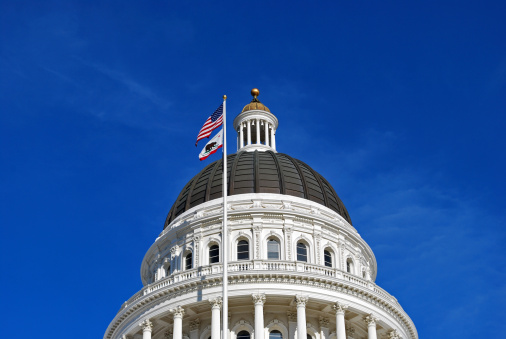 Governor Jerry Brown signed Senate Bill 411 into law Tuesday, clarifying that civilians have the legal right to record public safety officers in California.
Governor Jerry Brown signed Senate Bill 411 into law Tuesday, clarifying that civilians have the legal right to record public safety officers in California.
Authored by State Senator Ricardo Lara, the “Right to Record Act” received bipartisan support as it advanced through the legislature and onto the Governor’s desk, according to an announcement from Lara’s office.
“Today, California makes it unequivocal – you have the right to record,” said Senator Lara in a statement. “With the stroke of a pen, Governor Brown reinforces our First Amendment right and ensures transparency, accountability and justice for all Californians. At a time when cell phone and video footage is helping steer important national civil rights conversations, passage of the Right to Record Act sets an example for the rest of the nation to follow.”
According to the release, SB 411 clarifies individuals’ First Amendment right to record police officers by stating that a civilian recording while an officer is in a public place, or the person recording is in a place he or she has the right to be, is not a violation of the law.
Additionally, recording does not constitute reasonable suspicion to detain a person, or probable cause to arrest.
“This law makes it crystal clear that a person who photographs or video records a public officer or police officer, in a public place, and does not physically interfere with that officer, is not committing a crime and is not subject to detention or arrest,” said Susan Israel, California Public Defenders Association Legislative Committee Member, in a statement. “It is the embodiment of protections guaranteed by the First Amendment to the United States Constitution.”
She said that the association supports Brown’s signature on the measure, especially during this crucial time in the nation’s history.
“SB 411 reaffirms the right of citizens to record the official actions of law enforcement in a reasonable, non-interfering manner,” said Larry Doyle of Conference of California Bar Associations, in a press statement.
He said the Right to Record Act is a win-win, and that the law “protects the public from misconduct and excess by law enforcement, and also protects good police officers who could otherwise have their careers and reputations damaged by untrue allegations of misconduct.”
“Following various high profile incidents across the country, it is essential for the community to hold the police accountable without fear of being intimidated or arrested,” said Dennis Garcia, spokesman for California Attorneys for Criminal Justice, which co-sponsored the legislation, in a statement.
This bill comes as news accounts and videos have recently surfaced showing civilians being arrested for recording police officers in the cities of Los Angeles, Torrance and San Diego, as well as Orange County, Lara’s office said in a statement. A release issued by his office noted that the conflict extends outside of California and far past police officers and civilians, to professional photographers and media personnel as well.

